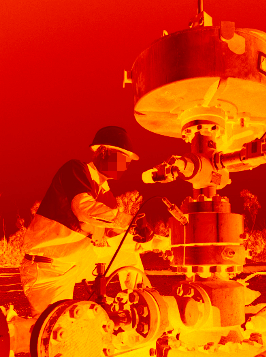Gas study links queried
 Questions have been raised about a perceived conflict of interest in an NT government gas contract.
Questions have been raised about a perceived conflict of interest in an NT government gas contract.
The Northern Territory government has handed a contract for local fracking research worth $325,000 to the University of Queensland (UQ) to study the baseline social, cultural and economic impacts of fracking in the region.
The contract is part of the Strategic Regional Environmental and Baseline Assessment (SREBA), which the NT Government says will be completed before any production licences are issued to gas companies.
The work will be carried out by UQ’s Centre for Natural Gas, which is partly funded by oil and gas firms including Santos, which has exploration wells in the NT’s Beetaloo Basin.
NT government guidelines say the preferred procurement method for tenders valued between $100,000 and $500,000 is a public tender, but the government directly approached the university for the job in question.
The university says its work is independent and reports say it was given the contract because of its experience, but one expert says it may lead to “at the very least the perception of conflicts of interest”.
Rod Campbell from the Australia Institute has pointed out that UQ regularly collaborates with the mining, oil, and gas industries.
“Often, that probably could be appropriate - where the community's interests and resource company's interests are moving in the same direction - perhaps by improving some aspect of technology,” he told the ABC.
“But when you're looking at social and environmental issues and public communications issues, in those situations, the public's interest and resource company interests are not necessarily aligned.
“So I think it's absolutely imperative that genuinely independent bodies are carrying out these studies and that they're seen to be more independent.”
The Northern Territory’s Minister for Mining and Industry Nicole Manison defended the awarding of the tender.
“I don't think the tender process is the issue here; it's about the quality of the data and making sure the public gets access to it,” she said.
“We've said that we are going to be open about this, and transparent about this, to give the community confidence around the science and the management of the onshore gas industry.”








 Print
Print